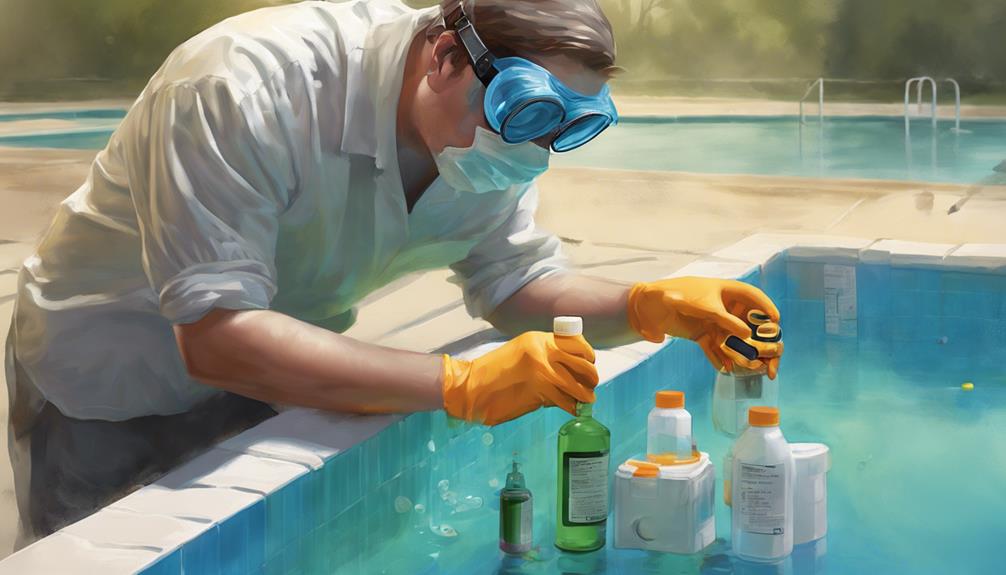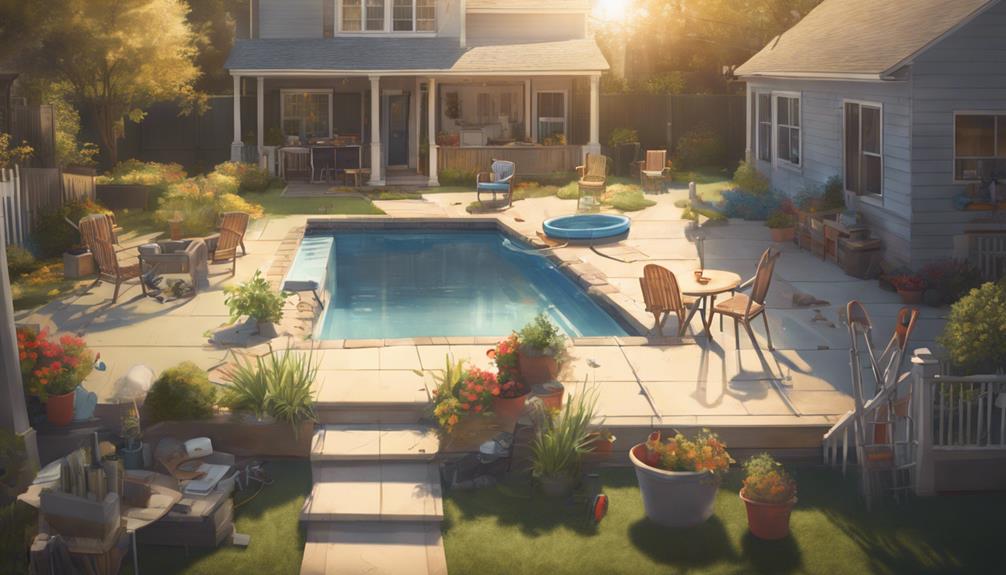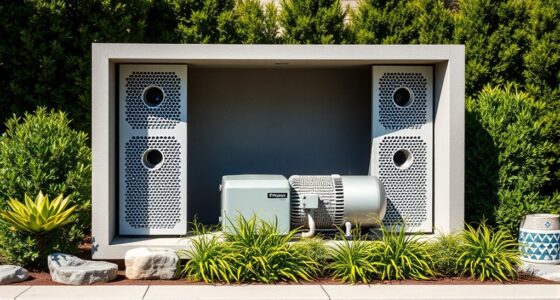Prepare your pool for winter like a professional by maintaining cleanliness – skim, vacuum, and brush regularly. Remove accessories like ladders and diving boards for protection. Balance chemicals within specific levels – pH between 7.2-7.8, calcium hardness 180-220 ppm, alkalinity 80-100 ppm, shock pool appropriately. These steps ensure a well-prepped pool for the colder months, protecting against damage and ensuring functionality. Install a high-quality pool cover to prevent debris accumulation and protect the water from harsh winter conditions. Regularly check the cover for tears or sagging to ensure it remains effective. By following these steps and embracing pool maintenance tips for all seasons, you can extend the lifespan of your pool and enjoy clear water year-round.
Key Takeaways
- Maintain a pristine pool environment by skimming, vacuuming, and brushing to prevent buildup.
- Remove pool accessories like ladders, slides, and diving boards for protection against winter damage.
- Balance chemicals by adjusting pH, calcium hardness, alkalinity, and shocking the pool for effective winterization.
- Store accessories in a dry, covered area to prevent deterioration or breakage.
- Ensure proper filtration and circulation by cleaning the skimmer and pump basket regularly.
Cleaning Your Pool
To maintain a pristine pool environment throughout the winter season, it is crucial to start by making sure the pool is meticulously free of leaves, dirt, and debris. Regularly skimming the surface, vacuuming the pool floor, and brushing the walls will help prevent build-up and algae growth.
Additionally, cleaning the skimmer and pump basket is essential for proper filtration and circulation. By removing any organic material that could decompose over the winter, you can avoid potential water contamination issues.
Taking the time to thoroughly clean your pool now will make the reopening process in the spring much smoother and guarantee a crystal-clear swimming experience for the upcoming season.
Removing Pool Accessories
Proper winter pool maintenance requires the careful removal and storage of pool accessories to safeguard against potential damages caused by snow or ice accumulation.
Store detachable ladders, slides, and diving boards in a dry, covered area to prevent deterioration or breakage. Removing these accessories not only protects them from harsh winter conditions but also helps maintain the overall appearance and functionality of the pool area.
Balancing the Chemicals

How significant is it to maintain the proper chemical balance in your pool for effective winterization?
Balancing the chemicals in your pool before winterizing is vital to make certain the water remains clean and clear during the off-season. Adjusting the pH level to fall between 7.2 and 7.8 helps prevent corrosion and scale buildup.
Maintaining calcium hardness within the range of 180 to 220 ppm is crucial to protect your pool surfaces. Keeping the alkalinity levels between 80 and 100 ppm helps stabilize the pH and prevent sudden fluctuations.
Shocking the pool to raise the chlorine level to 10-12 ppm before gradually reducing it to 1.5-3.5 ppm guarantees that bacteria and algae are effectively controlled throughout the winter months.
Frequently Asked Questions
How Can I Protect My Pool Cover From Strong Winds and Heavy Snow?
To protect your pool cover from strong winds and heavy snow, utilize windproof covers or secure it tightly with cover clips. Regularly remove snow buildup to prevent damage. Properly anchoring the cover and using support poles can also enhance protection.
Is It Necessary to Cover My Pool During the Winter Months?
Covering your pool during the winter months is vital to protect it from debris, algae growth, and freezing temperatures. A pool cover acts as a barrier, preventing damage and reducing maintenance efforts once the pool reopens in spring.
What Should I Do if I Notice Cracks in My Pool Walls Before Winter?
What should you do if you notice cracks in your pool walls before winter? Address cracks promptly by consulting a professional for repair. Neglecting these issues may lead to further damage and complications during the colder months.
Can I Use a Heat Pump to Keep My Pool Water Warm During Winter?
Yes, a heat pump can be used to keep pool water warm during winter, maintaining a comfortable temperature for swimming. Properly sized heat pumps can efficiently heat pool water even in colder temperatures, providing extended usability and enjoyment.
How Do I Prevent Algae Growth in My Pool During the Off-Season?
Prevent algae growth during the off-season by maintaining proper chemical balance, especially chlorine levels. Regularly check and adjust pH, calcium hardness, and alkalinity. Cover your pool to block sunlight and debris, inhibiting algae development.
Conclusion
To wrap up, correctly winterizing your pool is crucial for its durability and functionality.
One intriguing statistic to bear in mind is that a pool cover can diminish water evaporation by up to 95%, aiding in conserving water and sustaining the pool's chemical equilibrium.
By adhering to a thorough checklist and utilizing expert methods, you can guarantee that your pool stays in prime condition during the winter months and is prepared for a smooth reopening in the spring.










